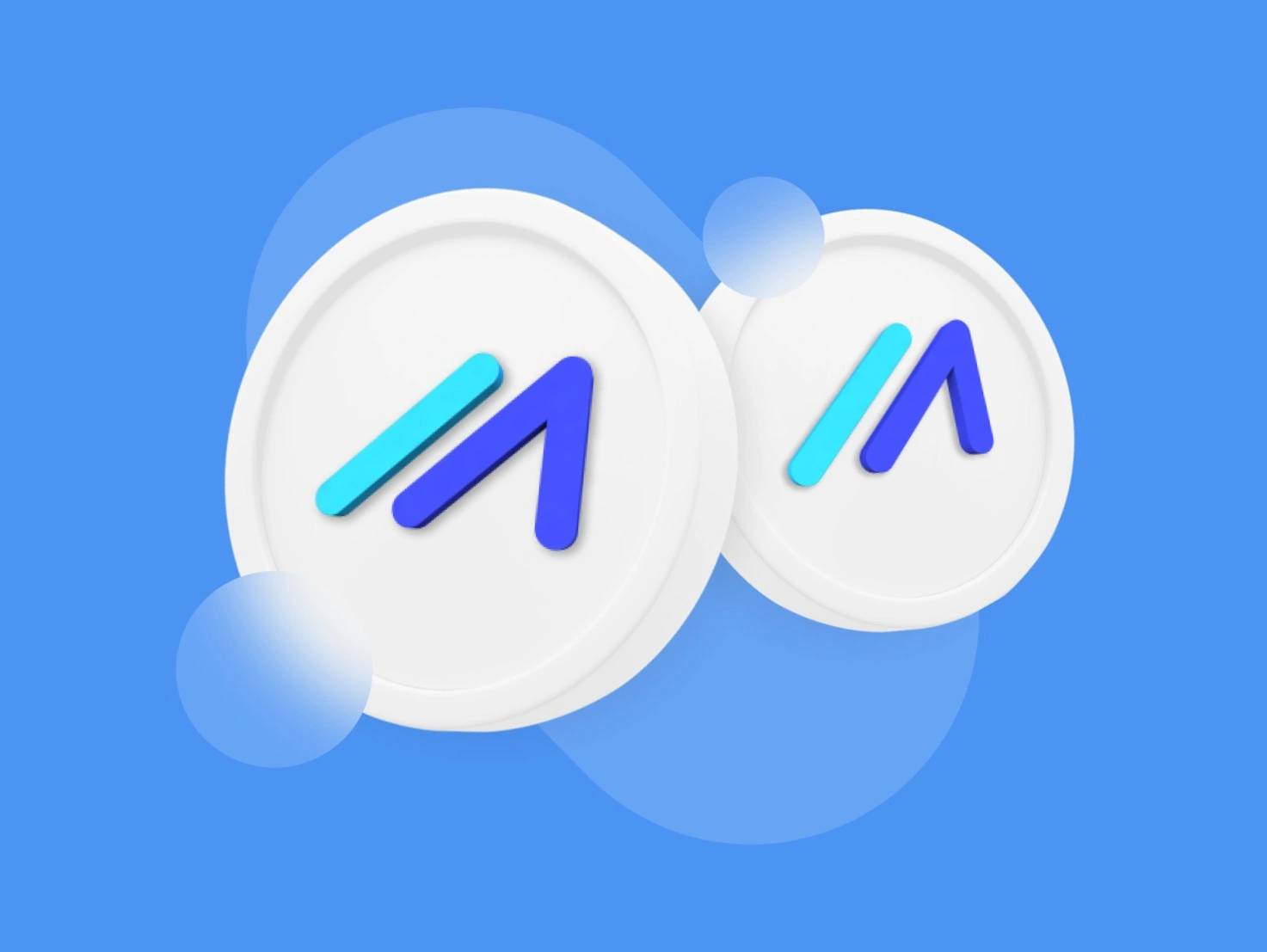Subscribe to wiki
Share wiki
Bookmark
Marlin
The Agent Tokenization Platform (ATP):Build autonomous agents with the Agent Development Kit (ADK)
0%
Marlin
Marlin is a protocol designed for verifiable computing. It leverages Trusted Execution Environments (TEE) and Zero-Knowledge (ZK)--based coprocessors to delegate complex workloads across a decentralized cloud. It empowers smart contract-based protocols, web or mobile clients, and enterprises to securely rent individual compute instances or deploy serverless functions over a globally distributed network of nodes. Siddhartha Dutta, Roshan Raghupathy, and Prateesh Goyal are the founders of Marlin. [1]
Overview
Marlin is a protocol for verifiable computing that utilizes Trusted Execution Environments (TEE) and Zero-Knowledge (ZK)--based coprocessors to delegate intricate workloads across a decentralized cloud. It enables smart contract-based protocols, web or mobile clients, and enterprises to securely and dependably rent individual compute instances or deploy serverless functions over a decentralized pool of globally distributed nodes. [1]
Smart contracts can delegate computations to Marlin by posting jobs onto a relay contract, which is then picked up by the network's nodes. Results are posted back on-chain along with an enclave attestation or ZK proof to verify the computations' correctness. Marlin enhances blockchain capabilities by boosting throughput through off-chain computations while ensuring on-chain verifiability. It also facilitates off-chain data access, relay, and chain abstraction, making blockchain usage transparent for users and developers. [1]
The Marlin network comprises different types of hardware, including servers with confidential computing support like Intel SGX and GPUs with confidential computing support. Users can access these nodes through various sub-networks, each offering distinct features and use cases. Oyster Cloud allows for the individual renting of confidential computing instances, while Oyster Serverless and Kalypso provide transparent outsourcing of jobs and ZK-proof generation. Marlin Cloud offers normal instances for individual renting, primarily reputation-based and without monitoring guarantees. Each sub-network operates with its sub-protocol, allowing any node to join, provided it meets the requirements. [1]
Marlin offers advantages over decentralized cloud or ZK coprocessing solutions, including tamper resistance and data confidentiality. Its confidential computing solution ensures execution integrity and prevents node operators from accessing users' data. Marlin's ZK-proof marketplace is also circuit-agnostic, enabling nodes to support various circuits and languages. [1]
Technology
Oyster
Oyster, a sub-network of Marlin, specializes in offering Trusted Execution Environment (TEE)--based coprocessors, providing a fast, inexpensive, and secure solution. It allows users to rent instances individually for any duration or delegate tasks among a pool of nodes in a serverless manner, paying only for the task's execution time. Nodes can be rented, and tasks delegated using smart contract calls and Web 2 APIs. [2]
Oyster nodes utilize TEEs to ensure security by guaranteeing hardware isolation, preventing interference from the host machine or its owner, and ensuring uptime and response time guarantees. Unlike Multi-Party Computations (MPC), Fully Homomorphic Encryption (FHE), or Zero-Knowledge Proofs (ZKPs), Oyster nodes operate like usual servers without redundancy in computation or complex cryptographic protocols, resulting in high performance similar to running programs on a normal machine. Additionally, TEEs are relatively inexpensive compared to other methods like blockchains, MPC, FHE, or ZK proofs, making them a cost-effective option for verifiable computations. [2]
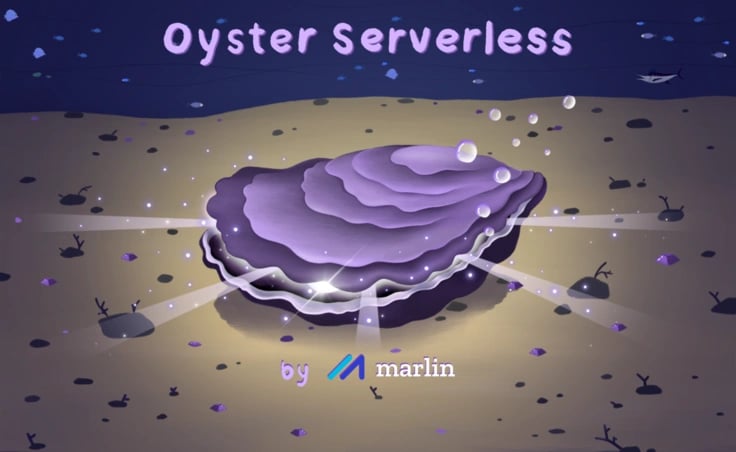
Kalypso
Kalypso functions as a marketplace for Zero-Knowledge (ZK) proofs, enabling applications to delegate the generation of such proofs to a network of hardware providers, leading to improved cost and time efficiency. This competitive market encourages hardware providers to innovate, lower costs, and enhance the speed of proof generation. These improvements can be achieved through various means, such as obtaining access to specialized hardware like Field-Programmable Gate Arrays (FPGA) or Application-Specific Integrated Circuits (ASICs), refining software, and securing affordable energy sources and inexpensive colocation facilities. [3]
There are four primary methods for generating ZKPs. Firstly, client-side generation occurs directly on end-user devices, commonly used in apps like games or payment systems. However, this approach can strain device performance and battery life. Secondly, server-side generation involves teams renting or purchasing machines to create proofs through exposed endpoints, which can be inefficient for infrequent proof generation. Thirdly, some platforms create their prover networks, which can be costly and complex. Lastly, proof markets like Kalypso allow dedicated hardware operators to handle proof generation, offering compatibility with various methods for flexibility and efficiency. [3]
Operating as an orderbook-based market, Kalypso efficiently connects users with proof generators. By matching each request with a single generator, Kalypso minimizes redundant work and ensures reliability through slashing-based guarantees, similar to proof-of-stake systems. It boasts advantages such as censorship resistance through its decentralized engine and permissionless prover network. Additionally, Kalypso enhances resource efficiency by enabling generators to place offers across multiple markets, optimizing revenue and reducing downtime. Furthermore, competition among generators within Kalypso drives efficiency improvements, resulting in cost-effective pricing and quicker proof generation times. [3]
Marlin Cache
Marlin Cache operates as a distributed event-driven caching system tailored for Dapps. It serves because many blockchain queries and activities stem from a small subset of contracts and addresses. By maintaining a cache of frequently accessed data, Marlin Cache aims to fulfill a substantial portion of queries locally without the need to query the blockchain directly. [4]
Marlin Cache provides users with several benefits. First, it allows requests to be served from nodes located much closer to the user, leading to significantly improved response times. Second, queries can be fulfilled without the overhead of directly querying blockchain data, further enhancing response times. Additionally, many requests can be resolved without hitting the origin, resulting in a substantially higher query rate at a reduced cost than the origin can feasibly accommodate. [4]
Marlin Tokens
In the Marlin economy, two Ethereum-based tokens are utilized: POND and MegaPOND (MPond). While POND is initially transferable, MPond is not, except for specific transfers involving the token distribution contract and transactions facilitated by a bridge. This bridge allows the conversion of 1,000,000 POND to 1 MPond and vice versa, subject to certain restrictions. [5]
Each Marlin node serves to relay and cache data, with every node mandated to stake a minimum of 0.5 MPond. In return, nodes receive staking rewards and fees based on their performance. MPond and POND can be delegated to other Marlin nodes, with node operators sharing a portion of their rewards with the delegator. The allocation of rewards and fees between MPond stakers and POND delegators may differ initially but can be adjusted through governance mechanisms. Additionally, MPond holders can participate in governance by proposing or voting on initiatives. [5]
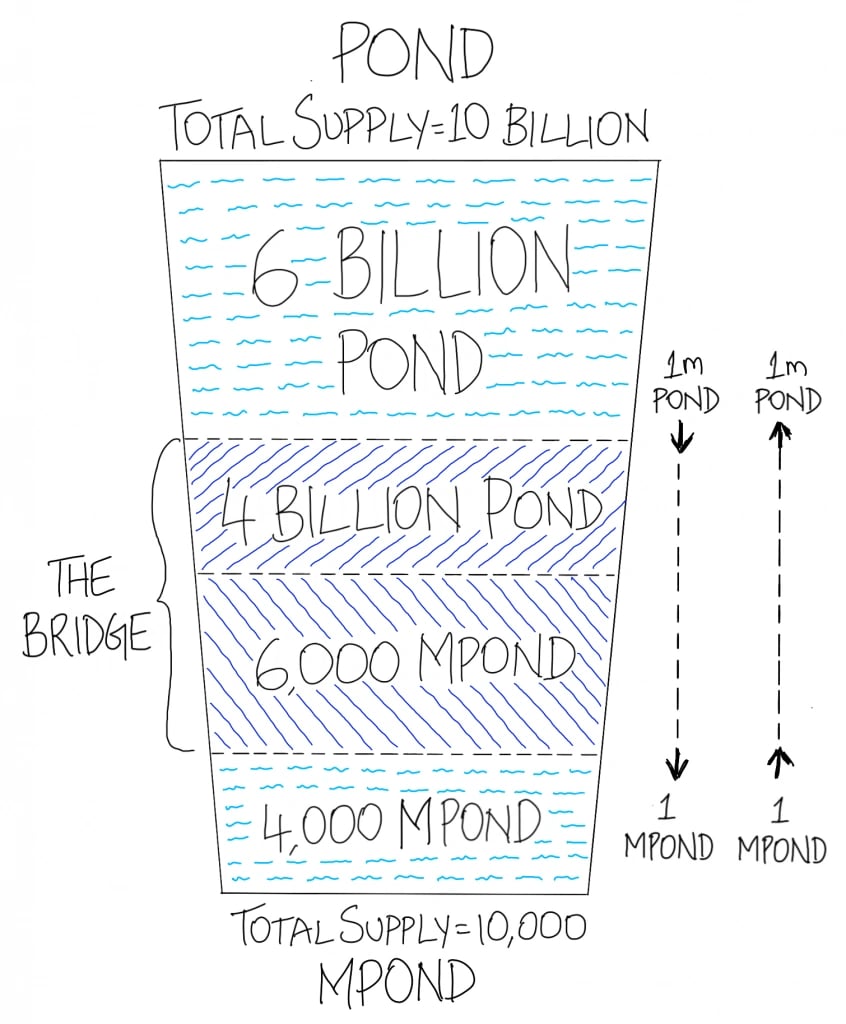
Tokenomics
The maximum supply of POND tokens is capped at 10 billion, consequently limiting the potential existence of MegaPOND tokens to a maximum of 10,000. POND and MPond are allocated cumulatively across various stakeholders. [5]
- Marlin Ecosystem: 31.9%
- Staking Rewards: 21.8%
- Private Sale: 17.2%
- FlowMint: 16%
- Team: 10%
- Advisors: 3%
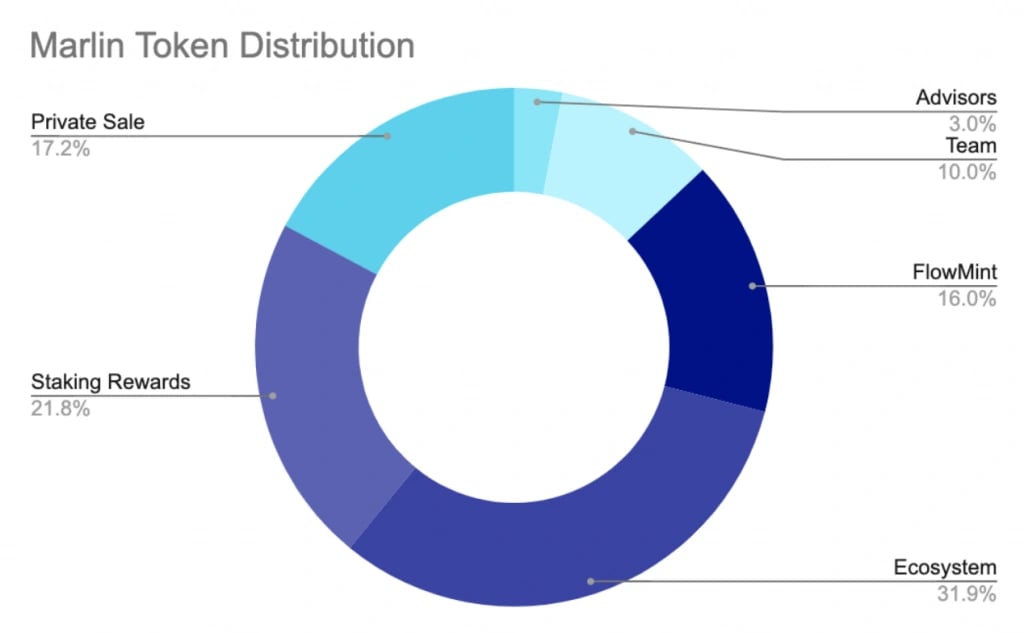
FlowMint
FlowMint, drawing inspiration from the NuCypher WorkLock and Edgeware LockDrop mechanisms, is designed to distribute tokens among various blockchain communities while encouraging their utilization. It aims to ensure that a lack of tokens does not hinder potential node operators while incentivizing their engagement with the Marlin network. [6]
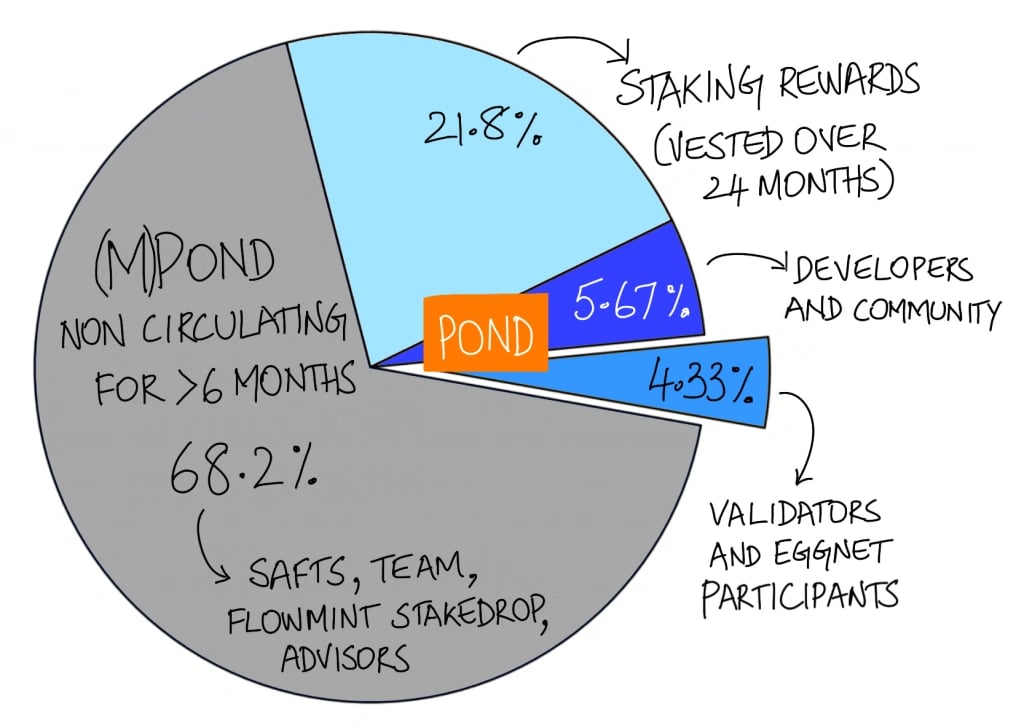
Partnerships
SPACE ID
On January 24th, 2024, the decentralized gateway for Arbitrum .arb domain name holders on SPACE ID using Marlin Oyster was launched, representing a notable advancement in our shared endeavor to enhance the user-friendliness, decentralization, and security of Web 3. [7]
On March 4th, 2024, the decentralized gateway for SPACE ID utilizing Marlin Oyster was released for the .manta name service. This development reflects the growing significance of maintaining identity cohesion within the expanding Web3 landscape, marking a stride toward that goal in collaboration with SPACE ID. [8]
Injective Protocol
On February 11th, 2021, Marlin forged a strategic partnership with Injective to advance its presence in the DeFi sector, particularly within the derivatives DEX market. Through this collaboration, Injective also helped Marlin broaden its user base. As a result, users gained access to new derivative products linked to the POND token, enhancing the overall utility of POND within the ecosystem. [9]
“The team at Marlin and Injective have been close since our incubation days in Binance labs. It is amazing to see just how far we have come over the past year. I am certain that Marlin’s layer 0 tech coupled with Injective’s unparalleled decentralized derivatives exchange will lead to limitless new opportunities for us both moving forward,” - Eric Chen, CEO of Injective Protocol.
Ankr
On February 9th, 2021, as Marlin launched its Larvanet, Ankr assisted users in running Marlin nodes and gateways with its 1-click deployment solutions. This partnership enabled Marlin users to deploy blockchain nodes in minutes. The collaboration with Ankr aimed to reduce the cost of Marlin's node development process and make deployment more affordable while facilitating easy deployment across different geographic locations. [10]
StaFi
On January 26th, 2021, StaFi closely collaborated with Marlin to integrate its Layer-0 scaling protocol and create liquid staking derivatives of its network token POND. [11]
“Since staking in Marlin is going to launch with an unbonding period of 30 days while providing highly competitive rewards to validators, our work with StaFi to develop rPOND should be of great interest to POND token holders planning to participate in the network. StaFi’s new Ethereum bridge makes rPOND nearly indistinguishable from POND itself.” -Siddhartha Dutta, CEO of Marlin.
See something wrong?
The Agent Tokenization Platform (ATP):Build autonomous agents with the Agent Development Kit (ADK)
